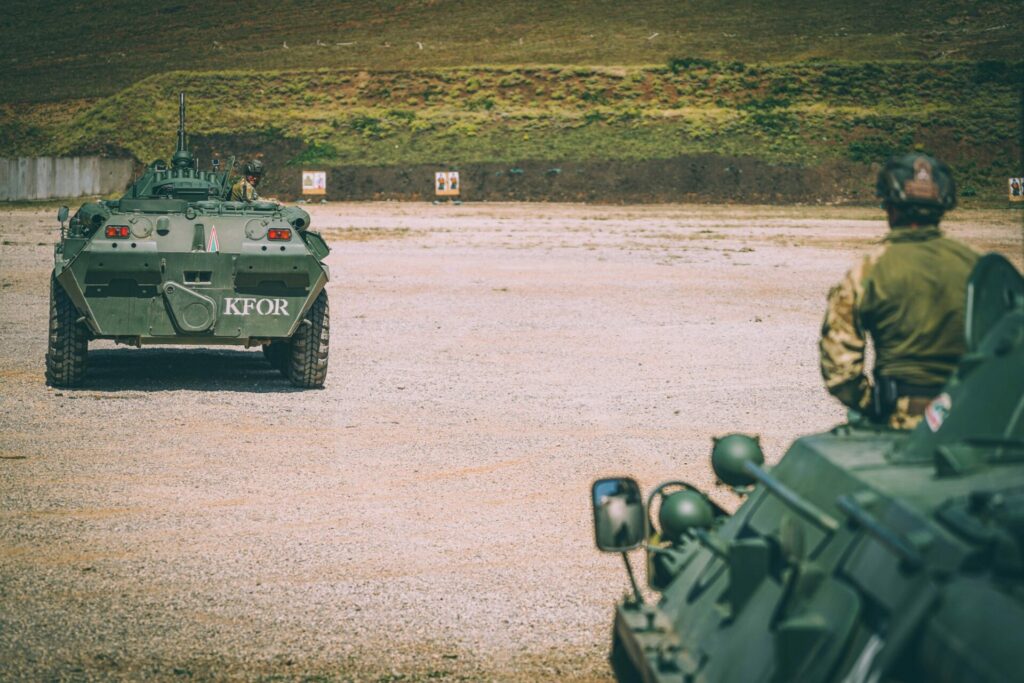Kosovo's government has postponed new border rules with Serbia after police closed two border crossings with Serbia on Sunday due to increasing tensions.
Police said they were forced to close the Bernjak and Jarinje border crossings as protestors fired at law enforcement and blocked roads.
Demonstrators were enraged at a new rule that would oblige anyone entering Kosovo with Serbian IDs from Monday to replace them with a temporary document during their stay in Kosovo. Protestors were furious about Kosovo implementing the rule, even as Belgrade officials apply the rule to Kosovars entering Serbia.
Kosovo added that ethnic Serbian residents with Serbian vehicle registration plates must change them to Kosovo license plates within two months.
After tensions on Sunday and meetings with EU and US ambassadors, Kosovo said it would postpone these plans for a month, and enforce them from 1 September.
EU foreign policy chief, Josep Borell, welcomed the move and called for protestors to get remove roadblocks immediately.
Why are Serbians protesting?
Around 50,000 ethnic Serbs live in northern Kosovo and they use license plates and documents issued by Serbia. They refuse to recognise Kosovo's right to create rules and implement regulations.
Serbian President Aleksandar Vučić believes events in Kosovo have never been "more complex" for Serbia and ethnic Serbs, according to Deutsche Welle.
"The atmosphere has been brought to a boil," Vucic said, threatening that "Serbia will win" should Serbs be attacked.
Kosovo Prime Minister Albin Kurti accused Vucic of igniting "unrest". On Sunday, Kosovo's President Vjosa Osmani urged Serbs not to be deceived by propaganda calling for reciprocity: "The measure of reciprocity is not directed against anyone... I invite Serbian citizens of the Republic of Kosovo not to fall prey to Belgrade propaganda."
Related News
- Turkey announces 'follow-up meeting' with Sweden and Finland
- Belgium's army will strengthen NATO's eastern border by land, air and sea
Osmani added that Kosovo officials are working to preserve the rule of law and freedom of movement but stated that "Vučić‘s attempts to destabilise Kosovo, which is being served by the methods of his mentor Putin, will fail."
Vučić still has strong ties to Russia, despite Serbia being a candidate for EU accession. In Moscow, Russian Foreign Ministry spokesperson Maria Zakharova said the rising tensions were due to "groundless discriminatory rules" laid down by Kosovo.
September 2021
The new border rules come nearly a year after Kurti tried to implement similar plans but gave up because of similar protests.
The new rules weren't well received by Serbia, who set countermeasures and sent forces to its border with Kosovo.
Serbia doesn't recognise Kosovo's independence. Although Kosovo declared independence from Serbia in 2008, relations between the two are at their most volatile in years.
On Sunday, NATO said it was ready to intervene if stability is jeopardized, adding that it will "take whatever measures are necessary to keep a safe and secure environment in Kosovo at all times."
NATO encouraged both parties to maintain dialogue.
The EU has brokered talks between the countries for the past decade but has so far not been able to normalize relations. The EU considers recognition of Kosovo's independance by Serbia as key for Serbian accession to the EU. However, Belgrade maintains that it won't recognise its former region, which it insists on calling Kosovo and Metohija.
EU members Greece, Cyprus, Slovakia, Romania and Spain do not recognise Kosovo’s independence. Last month, Kosovo announced it would officially apply to join the EU at the end of 2022.

